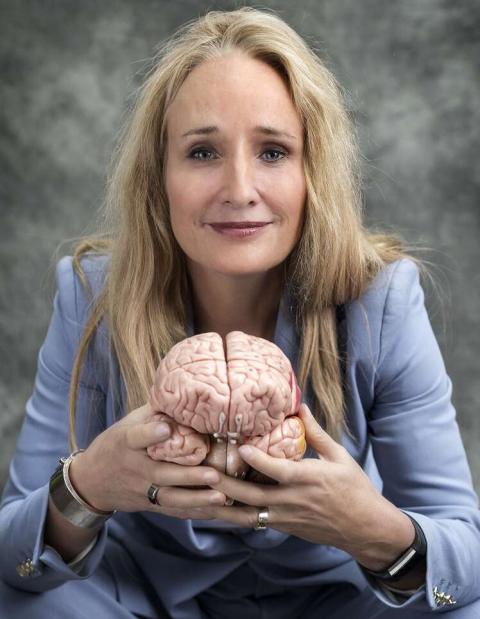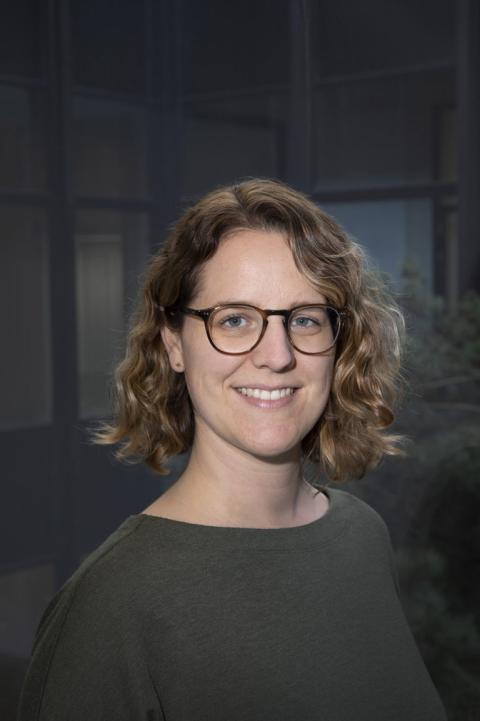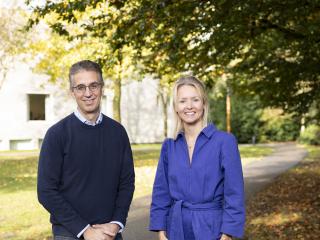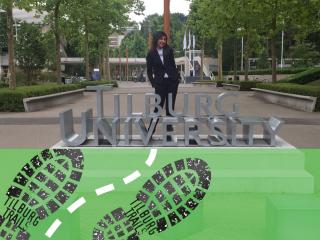Zero Poverty Lab: Ending generational poverty
The mission of the Zero Poverty Lab is to stop generational poverty, so that all 170,000 children born each year in our country can develop to their full potential. Zero Poverty Lab uses scientific research to realize social impact, in terms of poverty reduction, food security, and participation in our society once again.
In August 2022, the Netherlands Bureau for Economic Policy Analysis (Centraal Planbureau (CPB)) estimated that 1.3 million Dutch people live in poverty. In 2020, there were 221,000 children growing up in poverty. The general expectation is that these numbers will rise. The Zero Poverty Lab's research provides knowledge and solutions. We offer these outcomes to policymakers, aid organizations, and people living in poverty. This helps them to develop solutions, make impactful long-term choices to break the cycle of generational poverty, and thus end poverty permanently. The Zero Poverty Lab collaborates with the Zero Hunger Lab, a similar initiative focused on solutions to the world hunger problem.

Creating an environment in which people can develop is a common responsibility and good for all of us
Margriet Sitskoorn
The effect of poverty on the brain
Dr. Margriet Sitskoorn is Professor of Clinical Neuropsychology at Tilburg University. She is also the Director of its Zero Poverty Lab. Sitskoorn studies the relationship between behavior and the brain: “With the Zero Poverty Lab, we want to be part of the solution. Our motto is ‘enriched brains, enriched lives, enriched world.’ Creating an environment in which people can develop is a common responsibility and good for all of us.”
How the subject of poverty crossed her path? "I saw a work of art made by an artist with the help of AI; it showed people in an apocalyptic war zone. Thanks to AI, you could talk to these people. The question that occurred to me personally was: when you have the knowledge of what happens to people in a war situation, do you have a responsibility to use it? I explored and found out that the City of Waalwijk wanted to set up a program to combat poverty. And again the question of responsibility came to my mind: as a scientist, can you look the other way when you know there are people in the Netherlands who live in poverty? This led to a study into the question of what poverty does to the brain – that is my job after all. What I discovered scared me, namely, that the brain changes as a result of poverty. Your stress system changes, making it harder for you to cope with stress; you become better at short-term solutions, because you need that skill, but long-term decision-making becomes harder, as a result of which it is harder to resist impulse buying. Which makes it increasingly difficult to escape from poverty."
Read the interview with Margriet Sitskoorn
Ending generational poverty
Generational poverty seems to be a downward spiral that is only getting worse. The good news is that executive functions can be improved. This can be done with solutions that appeal to neuroplasticity or the brain's ability to develop. The Zero Poverty Lab is conducting research from various research disciplines on how this ability can contribute to solving the poverty issue.

Poverty and hunger gets ‘under people's skin’ and is passed on to the next generation
Marion van den Heuvel
Marion van den Heuvel, associate professor of Developmental Neuropsychology, is also closely involved in the Zero Poverty Lab: “Poverty and hunger gets ‘under people's skin’ and is passed on to the next generation. I want to show that conclusively. Because of this, the next generation starts off at a disadvantage. Not only because their cradle is in the wrong place but also because their body and brain are developed differently even before they are born. This pattern can be broken, and we must do that.”
Multidisciplinary research
Within the Zero Poverty Lab, multidisciplinary research focuses on several themes, including visualizing the effects of poverty using AI. The goal of this research is to gather knowledge about the complex interplay between poverty, cognitive functioning, and the underlying brain networks in adults, resulting in the development of a dashboard to improve communication, understanding, and action among stakeholders. It is also possible to use AI to develop predictive neural network models. What causes poverty stress? The aim is to enable early targeted solutions to prevent the negative effects of poverty. The research also focuses on improving executive functions of the brain to break the cycle of generational poverty, creating greater equity of opportunity. The Zero Poverty Lab is part of Tilburg University's Program for Broad Prosperity.
Want to learn more? Watch this video on the Zero Poverty Lab
Tilburg University Fund and Tilburg University’s Digital Sciences for Society program contribute to this initiative.
Support the Zero Poverty Lab – Become a donor
The Zero Poverty Lab is one of Tilburg University's wonderful initiatives supported by the Tilburg University Fund. With your donation to the Tilburg University Fund, you can provide this and other education and research projects with extra support. Together we contribute to a better world.
Date of publication: 23 November 2023



